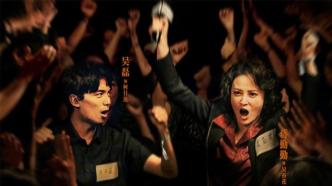
Note: This article contains spoilers
Young director Gu Xiaogang's first feature film and one of the "Landscape Trilogy" "Spring River Water Warm" received rave reviews in the industry and won the Best Feature Film and Best Director Awards at the 13th FIRST Youth Film Festival , won the 32nd Golden Rooster Award for Best Small and Medium-Cost Feature Film, and was also selected as the top ten films of France's "Cahiers du Cinema" in 2020, ranking 7th.
The image style of "Spring River Water Warmth" is deeply influenced by traditional Chinese landscape painting art, presenting unique visual aesthetics and narrative techniques, making the film a dynamic and poetic landscape painting; through in-depth understanding of local humanities and daily life Through excavation and delicate depiction, the film shows the warmth of human fireworks and family ethics, giving fresh vitality to the landscape paintings.
With such a high starting point for his first feature film, Gu Xiaogang's second feature film, "The World of Grass and Trees", the second of the "Landscape Trilogy", naturally attracted much attention.
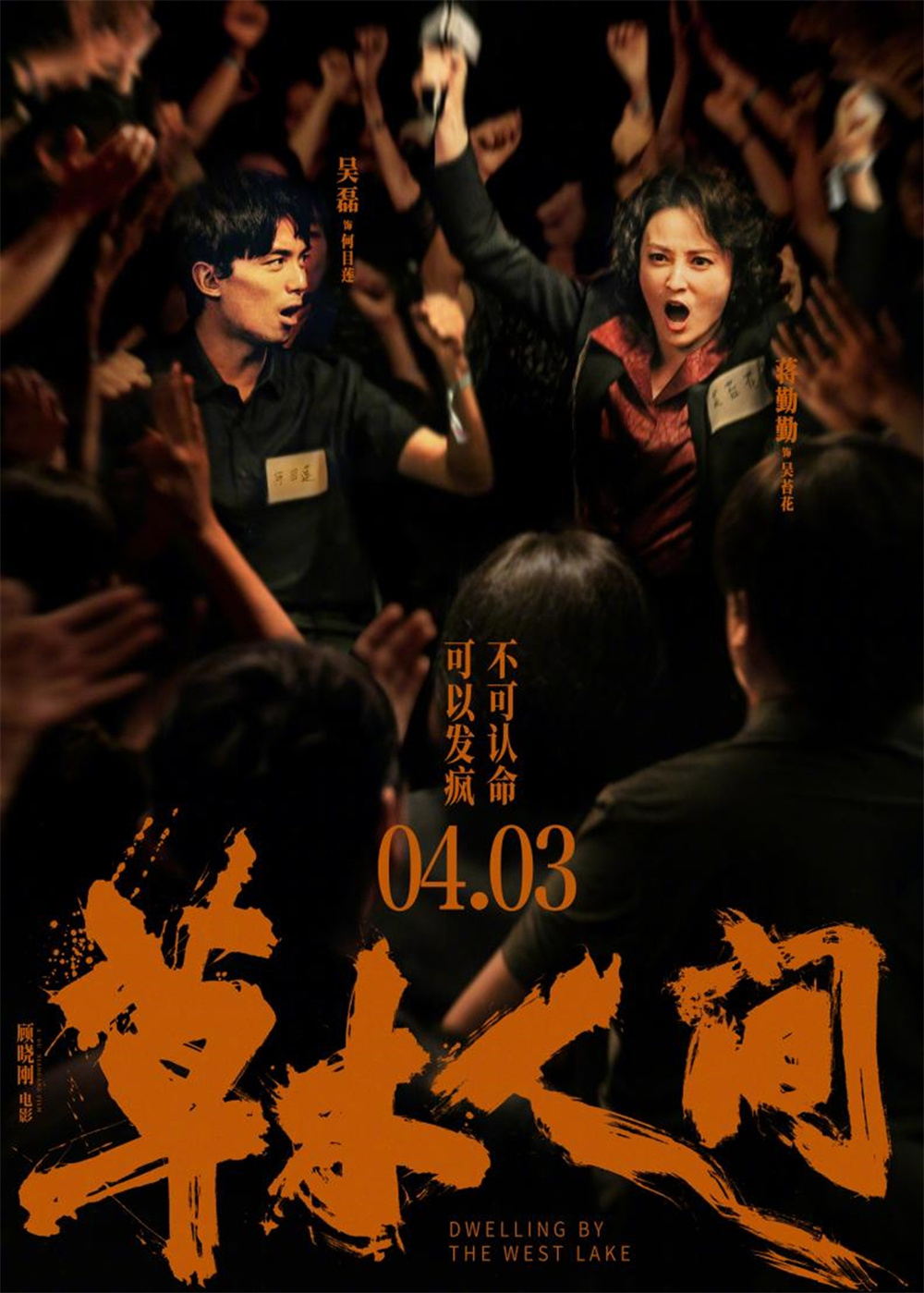
"The World of Grass and Trees" Poster
"The World of Grass and Trees" is a modern interpretation of the traditional Chinese folk tale "Mu Lian Saves His Mother". It tells the story of his son He Mulian (played by Wu Lei) who rescues his mother Wu Taihua (played by Jiang Qinqin) who fell into a pyramid scheme. The film brings together professional actors such as Wu Lei, Jiang Qinqin, and Chen Jianbin. On the eve of the film's release, Jiang Qinqin won the Best Actress at the 17th Asian Film Awards, adding a lot of popularity to the film.
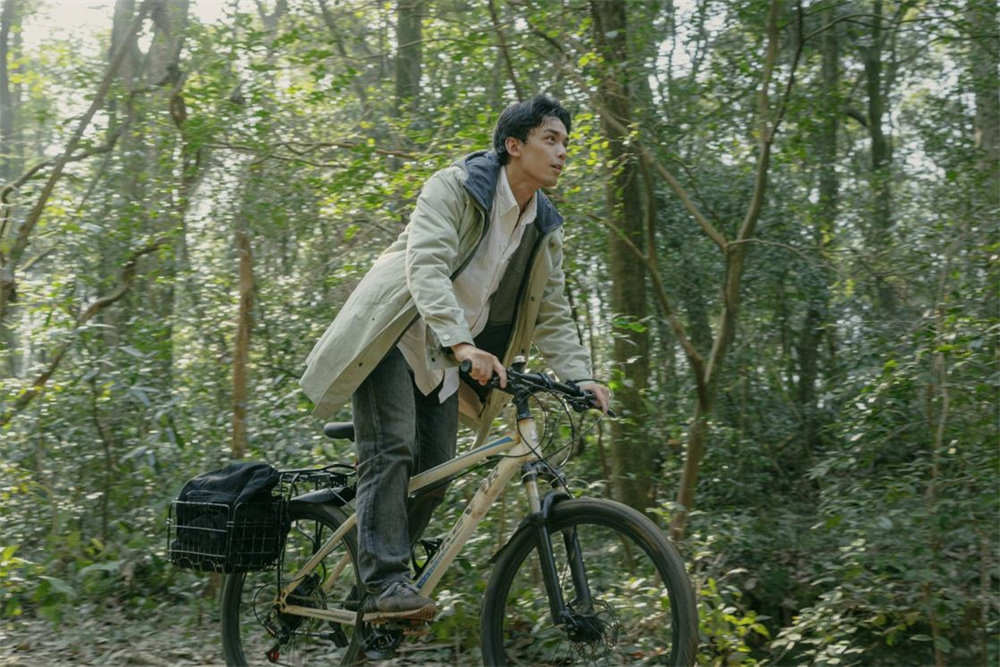
He Mulian (played by Wu Lei)
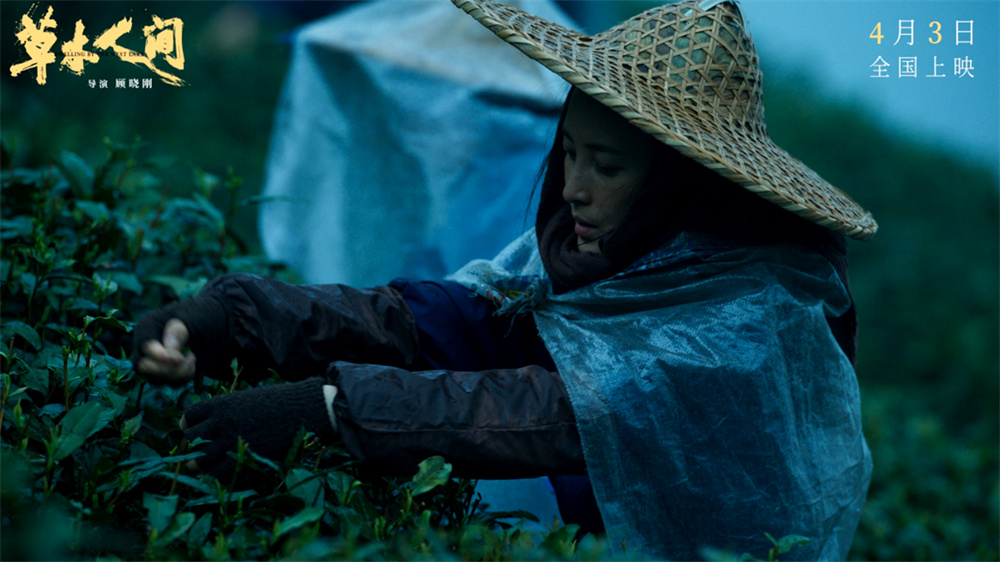
Wu Taihua (played by Jiang Qinqin)
However, for the young director's second work, the audience may need to lower their expectations.
Professor Dai Jinhua has such a keen observation: "I found that many young directors have extraordinary debuts, but if they have the opportunity to continue creating, their debuts often represent the highest peak of their creation. We all know about literature. The conclusion is that a work of genius alone cannot identify a writer. Because your first book is the preparation and accumulation of your entire life. It is only in the second book that your talent and your ability to master a special medium are tested. You use fiction and the power of imagination. Movies are exactly the same. Our current youth debut is a director’s previous life experience, thinking about art, and all the accumulation of learning, and then the second and third movies will test his ability to be a director. ." Dai Jinhua regretfully discovered that some directors' subsequent works "completely betrayed themselves and completely betrayed their talents."
The audience can rest assured that Gu Xiaogang does not fall into the category of "betraying himself", and "The World of Grass and Trees" cannot be simply and crudely defined as "bad"; however, if the audience watches "The World of Grass and Trees" with the expectation of "Spring River Plumbing", "Human World", it is possible to feel disappointed. The polarized comments on Douban short comments are already evident.
For most young directors, it is more difficult to succeed in the second film. On the one hand, the first film is the preparation for the first half of life, and the second film is the time to test their abilities; on the other hand, it is a newly famous and personal style. A very distinctive director is likely to have to face the difficult problem of balancing his personal style with the commercial demands of his management.
"The World of Grass and Trees" still reflects Gu Xiaogang's outstanding abilities. "The World of Grass and Trees" can be divided into three parts, the first part "Human World" (the warm daily life between mother and son before the mother fell into the pyramid scheme) and the third part "Paradise" (the son leads his mother to break away from the pyramid scheme and truly find inner peace) , retaining the aftertaste of "Spring River Water Warmth" in audio-visual language.
A large number of aerial shots are like soaring birds, with a grand perspective and delicate capturing power, leading the audience through the rolling mountains covered with rich green, overlooking the terraced tea gardens as scattered as the keys of a piano. The eyes are full of fresh green, hazy and agile. extraordinary. Umebayashi Shigeru's soundtrack flows with melody lines rich in oriental charm. It is graceful, tortuous, and implicit. It echoes the ups and downs of emotions through subtle rhythm changes. It is vivid, ethereal and transcendent, which adds a lot to the artistic conception of the film. The story of lotus and moss flower slowly unfolds in the landscape painting.
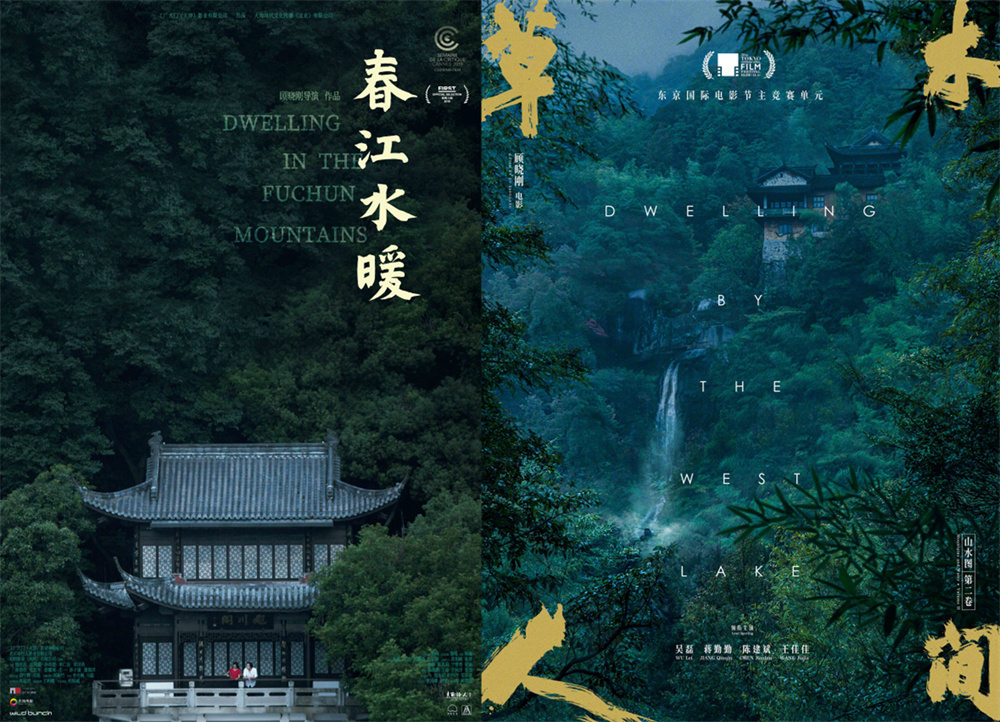
The original poster of "The World of Grass and Trees" continues the style of "Spring River Plumbing"
Although "Spring River Plumbing" has a high reputation, it was not released in theaters, but was directly released on video websites; if the entire movie of "The World of Grass and Trees" is in the style of the first and third parts, then its strong literary style will also be very It is difficult to achieve good box office returns in commercial theaters. This will obviously make investors hesitate. It is also a fact that "The World of Grass and Trees" encountered some setbacks in terms of funding in the initial preparation stage.
This is a real challenge that many young directors encounter in their second feature film: having a unique artistic style and visual language is an important factor for them to stand out in the film industry. Adhering to personal style means maintaining the independence and originality of creation, without Be influenced by short-term market trends or popular aesthetic concepts; however, film production is a costly project and usually relies on financial support from investors. The main goal of investors is to ensure return on investment, and the priority is the film’s Factors such as market positioning, audience acceptance, and box office expectations do not completely match the director's personal style.
Young directors are faced with a certain "tear". They are eager to stick to their original artistic aspirations, maintain the independence and purity of creation, and not be overly eroded by commercial logic, but they must also compromise, adapt, and even cater to the expectations of employers to some extent.

The current promotion and release of "The World of Grass and Trees", a proper commercial film route
It is hard to say that the second part of "The World of Grass and Trees", "Hell", was not motivated by commercial considerations. Some viewers call it "All or Nothing 2.0", which is not an exaggeration. The movie is really like a commercial film about the madness of pyramid schemes suddenly inserted into a literary film.
This part at least proves that Gu Xiaogang is not only good at filming with a literary and artistic tone, but he is also comfortable with commercial narratives. The second part is almost in the form of popular science, showing how MLM creates exciting situations, uses inflammatory language, and uses profit temptations and promises to stimulate members' emotions, weaken their ability to think rationally, and fall into mental fanaticism. Views on MLM organizations and obey instructions.
In order to create this crazy atmosphere, the audio-visual language of the second part is completely different from the first and third parts. The camera switching is fast and smooth, the editing rhythm is bright, the music intensity suddenly increases, the picture saturation is enhanced, the information is transmitted efficiently and directly, and a large number of exaggerated body movements, roaring language, and ferocious close-ups of facial expressions are used to stimulate the audience's senses... In short, Just "crazy".
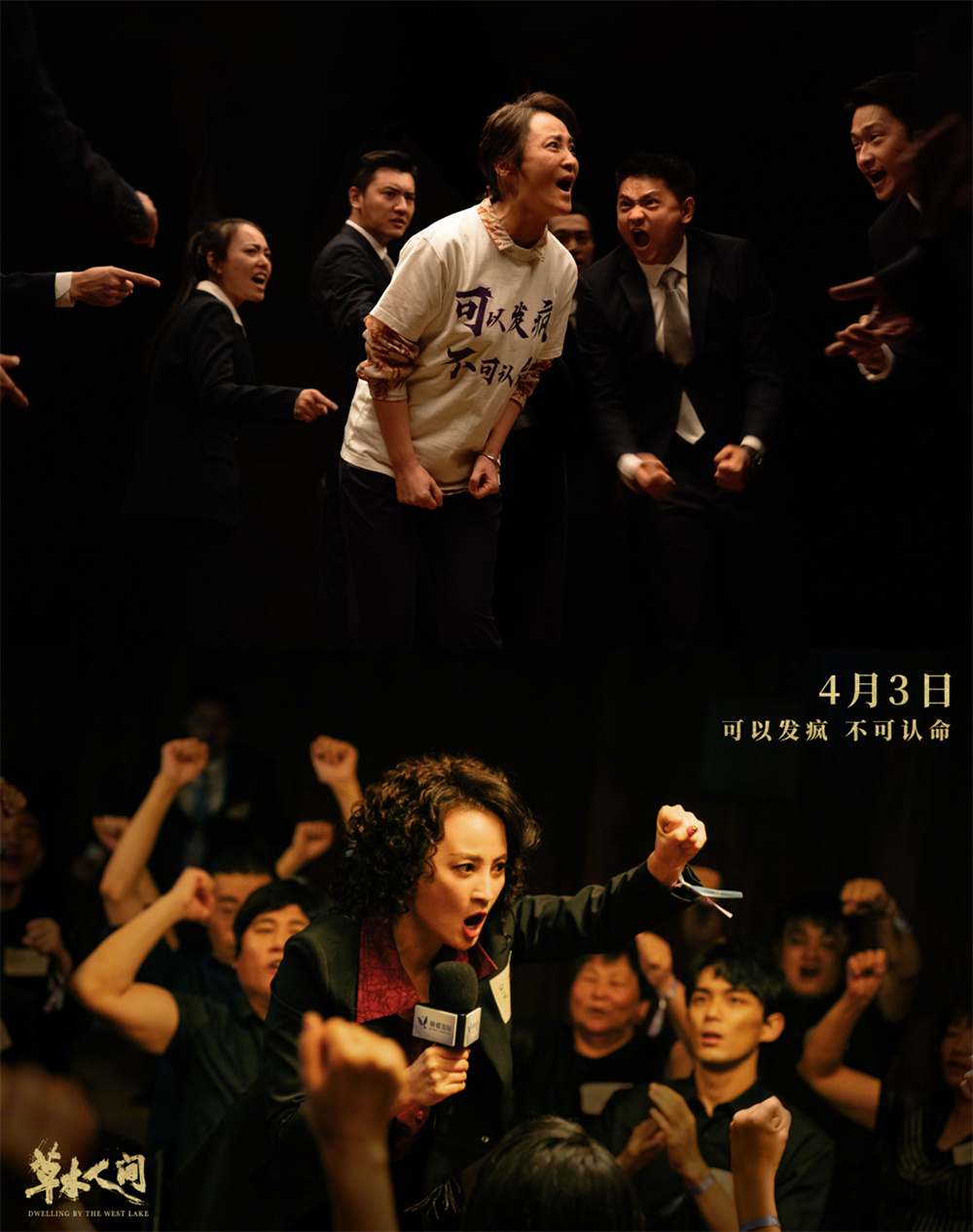
Wu Taihua who fell into MLM madness
In this part, Jiang Qinqin also contributed the most brilliant performance. Especially after Mu Lian called the police and repeatedly told her mother that she had been cheated, Taihua became manic and violent, spoke sharply, and hit her son. At this time, she accepted the profit predictions of the MLM model without reservation and turned a blind eye to any risk warnings. Her blind confidence caused her to ignore the difficulties and challenges of reality, and she was immersed in the beautiful fantasy woven by MLM and could not extricate herself. She was eloquent, her tone was urgent and firm, and she fiercely refuted her son, vowing to declare her truth, and vividly displayed the extremely excited and hysterical mental state of being trapped in the quagmire of pyramid schemes.
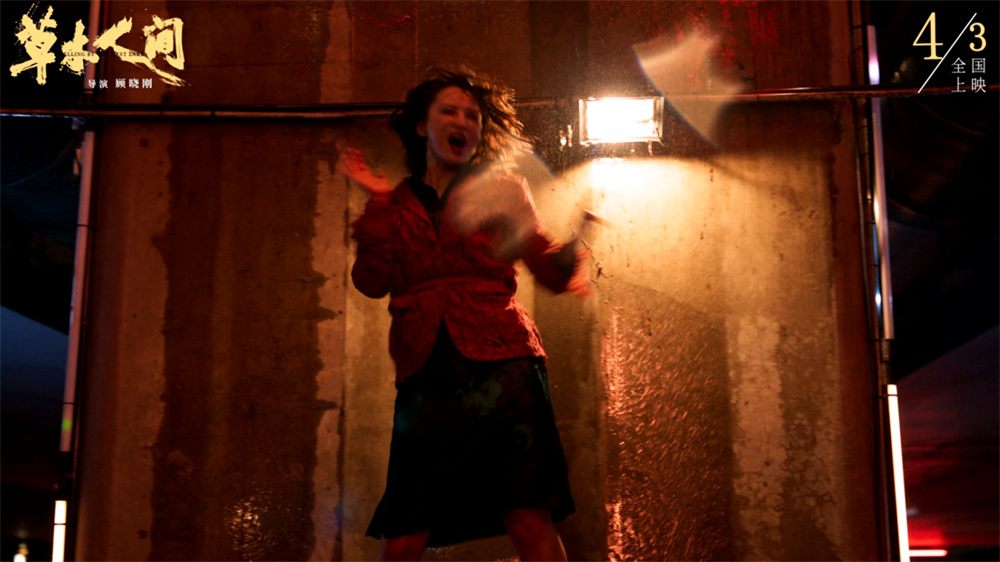
Some viewers thought this was a performance comparable to that of Joaquin Phoenix in "Joker".
It is commendable that when revealing the trap of pyramid schemes, the film does not fall into the "victim guilt theory", but "each of our unfortunate, tragic, and special personal stories must have its social meaning. It depends on how we discover it.” Most of the people caught up in pyramid schemes in the movie are themselves poor people in the world. When a person faces the pressure of survival and encounters various misunderstandings, belittlement, ridicule, and trampling, they are more eager to find a kind of relief or seek spiritual sustenance. MLM organizations often take advantage of this psychological weakness and attract these people to join by promising to solve their dilemma or provide spiritual support. "Moss flowers are as small as rice, and they also bloom like peonies." This question is: small people also have the need for self-esteem. How should reality provide them with it? This is the embodiment of humanistic care in the movie.
If you watch the movie separately, the first and third parts are good, and the second part is also good. However, when they are stitched together, many viewers feel a strong sense of stiffness. Although the director worked very hard to create an organic connection between them, the audio-visual languages of personal style and commercial pursuits are really distinct: one is full of charm, the other is full of content, the other is melodious and slow, and the other is non-stop. It is difficult to have both and not achieve seamless integration.
In Gu Xiaogang's self-report, he believed that his first feature film "is a film that turns its back to the audience, and even turned its back to myself, making myself a film medium, something as close to the essence of film as possible." "The creative motivation for the second part is very different. It is for the audience, because the biggest opportunity to create this movie is the subject of MLM... I really hope to give some meaning to society through this subject."
This self-narration is obviously meant to make up for the movie. We still have to say something kindly: the audience is not a monolithic concept. "Spring River Water Warmth" seems to "turn its back to the audience", but it has just found its audience - lovers of literary films; "The World of Grass and Trees" tries to target the public, but it also retains The director's distinctive personal style may cause criticism from both art film audiences and commercial film audiences - the former think it is too commercial, while the latter think it is not commercial enough.
Ending this article with the words of Professor Dai Jinhua is also an important reminder for young directors: "I think how can today's young directors truly form their own aesthetic pursuits, or their own unique business routines, after they have reached a very high starting point? The model of reproduction can be copied, and I think that’s a big question – how can the talent of young directors be sustainable.”
Should you stick to your aesthetic pursuits without hesitation, or should you choose a business routine that can be copied and reproduced? This is a question that Gu Xiaogang needs to think about in his subsequent feature films, and it is not a question that other young directors need to think about.


